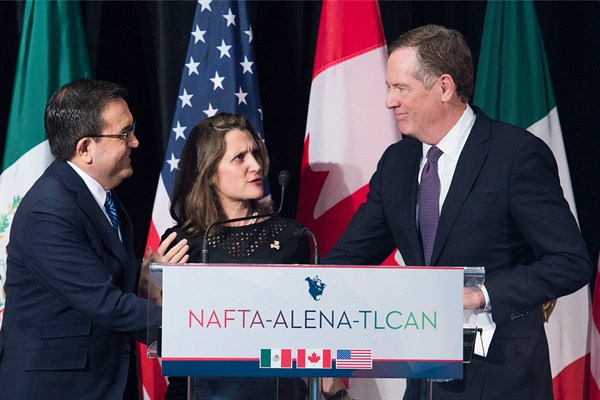Mexican President Andres Manuel Lopez Obrador was elected last year after promising to tackle corruption and inequality and improve conditions for Mexican workers. So it was little surprise that one of his first acts upon taking office in late 2018 was to raise the minimum wage. AMLO, as the president is known, also had his advisers join the team renegotiating the North American Free Trade Agreement and encourage the acceptance of U.S. demands to embed key labor law reforms in an updated deal. The result was an annex to the labor chapter in the new NAFTA 2.0—which President Donald Trump rebranded as the U.S.-Mexico-Canada Agreement, or USMCA—that requires Mexico to strengthen workers’ ability to elect independent, honest unions that represent them, rather than colluding with management to suppress wages. That legislation was just passed by the Mexican Congress, and it now awaits the president’s signature.
While the labor annex did not require that Mexico pass such labor reform legislation before the USMCA could be implemented, Speaker of the House Nancy Pelosi said earlier this month that Congress would not vote on the deal until Mexico acted. But will that be enough?
From the beginning of the first NAFTA negotiations in the early 1990s, American unions and their supporters have complained that inadequate workers’ rights give Mexico an unfair competitive advantage and give American manufacturers an additional incentive to offshore production to Mexico. One key complaint has been that unions in Mexico don’t actually represent their members’ interests. Rather, in return for benefits for themselves, union leaders negotiate “protection contracts” with factory management to hold down wages and keep workers in line. The Mexican government in the past did little to raise minimum wages or improve working conditions, and authorities often cracked down on workers who protested this situation.

